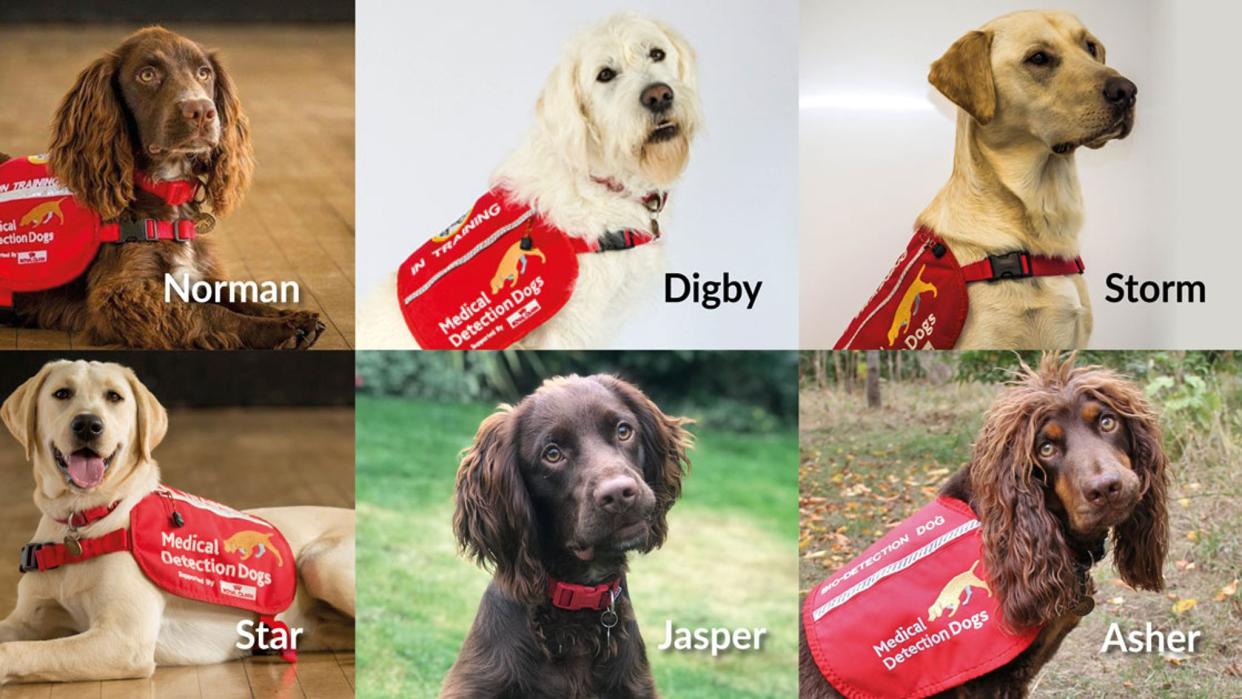Coronavirus: Dogs being trained to find passengers with COVID-19 at UK airports

Dogs are being trained to detect coronavirus in passengers arriving at UK airports.
Canines at the Medical Detection Dogs charity have previously been used to find cancer, Parkinson's disease and malaria and will receive similar training in order to help during the pandemic.
The organisation's founder believes the animals could detect COVID-19 in asymptomatic travellers arriving in the UL when lockdown measures are relaxed.
The charity is working in partnership with the London School of Hygiene and Tropical Medicine (LSHTM) and Durham University.
Six dogs have been earmarked for the training; Norman, Digby, Storm, Star, Jasper and Asher.
The charity said their noses may be able to detect coronavirus in as little as six to eight weeks.
:: Listen to the Daily podcast on Apple Podcasts, Google Podcasts, Spotify, Spreaker
Dr Claire Guest, chief executive and co-founder of Medical Detection Dogs, said: "In principle, we're sure that dogs could detect COVID-19. We are now looking into how we can safely catch the odour of the virus from patients and present it to the dogs.
"The aim is that dogs will be able to screen anyone, including those who are asymptomatic and tell us whether they need to be tested. This would be fast, effective and non-invasive and make sure the limited NHS testing resources are only used where they are really needed."
Professor James Logan, Head of Department of Disease Control at The London School of Hygiene & Tropical Medicine, said: "Our previous work demonstrated that dogs can detect odours from humans with a malaria infection with extremely high accuracy - above the World Health Organisation standards for a diagnostic.
"We know that other respiratory diseases like COVID-19 change our body odour so there is a very high chance that dogs will be able to detect it. This new diagnostic tool could revolutionise our response to COVID-19 in the short term, but particularly in the months to come, and could be profoundly impactful."
A crowdfunding page has been set up to raise £500,000 to train the dogs.

 Yahoo News
Yahoo News 
